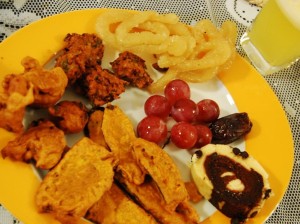

Few Salient feature of Ramadan Mubarak
For Muslims the coming of Ramadan is a source of joy and celebration; however, we celebrate in a way that may seem strange to people unfamiliar with the tenets of Islam. Ramadan is not a month of parties and socializing, it is a month of worship. To fast the month of Ramadan is one of the pillars of Islam.
The noble month is a true school of transformation in which we change our actions, habits and manners, but what will happen after it is gone, do Muslim continue performing the good deeds.

For Muslims the coming of Ramadan is a source of joy and celebration; however, we celebrate in a way that may seem strange to people unfamiliar with the tenets of Islam. Ramadan is not a month of parties and socializing, it is a month of worship. To fast the month of Ramadan is one of the pillars of Islam.
Fasting in this month was first prescribed in the 2nd year of Hijri:
“O Believers! Fasting have been made obligatory upon you as it was made obligatory upon those before you, so that you may become pious.”[Holy Qur’an: Surah Baqara, verse 183]
“When there comes the month of Ramadan, the gates of Mercy are opened, and the gates of Hell are locked and the devils are chained.”[Sahih Muslim: Book 31, Hadith no. 118]

Although the fast is obligatory for all sane adult Muslims in good health, a number of exemptions are allowed. These are seen as proof of Allah’s wish not to place too onerous a burden on His people.
Following Ramadan there is a three-day festival of prayer and feasting known as ʿAl Id-Fitr. Special sweet dishes are prepared, giving the festival its other name of Sweet Id. Muslims give thanks to Allah for enabling them to perform their duty of fasting, and there is much visiting and exchange of gifts, including food, with family and friends. Charitable giving is also encouraged.